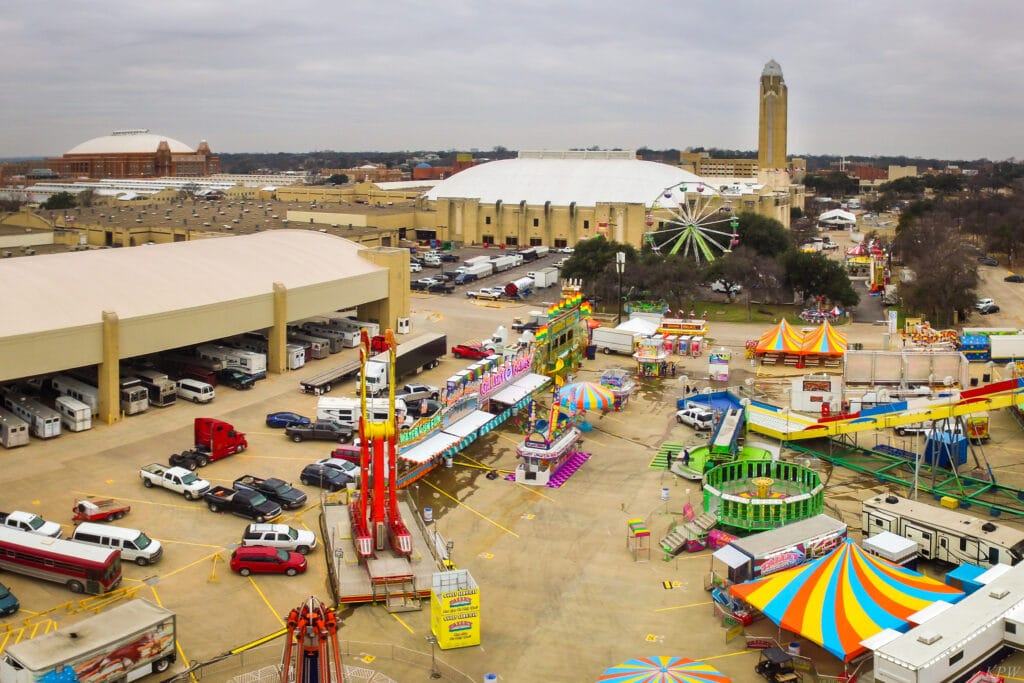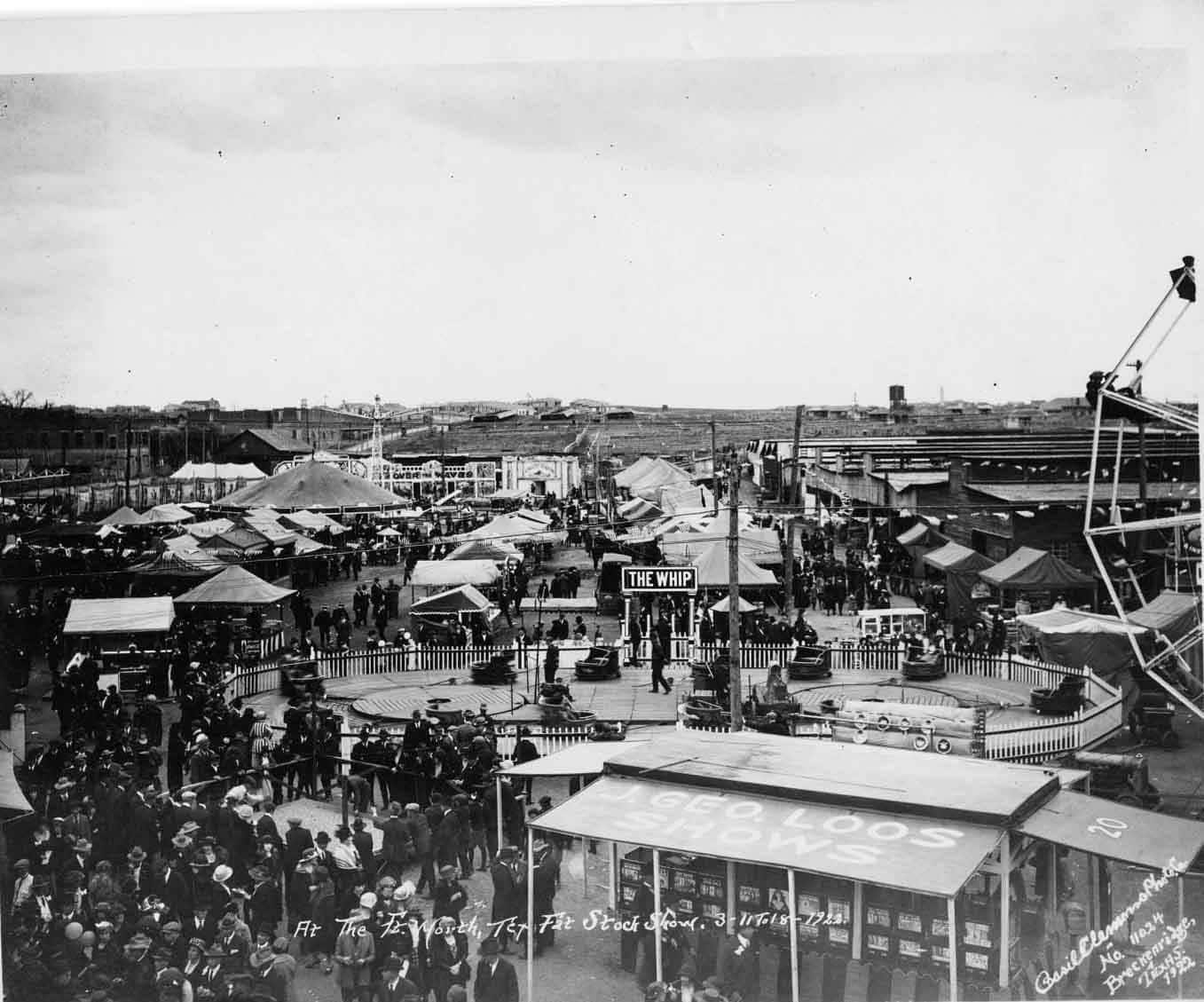ROBERT FRANCIS
The 2021 Fort Worth Stock Show & Rodeo has been canceled.
It was not, by all accounts an easy decision. And little wonder.
The executive committee of the Fort Worth Stock Show & Rodeo (FWSSR) voted unanimously on Thursday, Oct. 8, to cancel the 2021 Show scheduled for Jan. 15 through Feb. 6, citing the ongoing pandemic and Centers for Disease Control guidelines, according to a news release from the show.
The Fort Worth Stock Show & Rodeo is an economic boon to the city of Fort Worth, North Texas and West Texas.
Like the crack of an auction gavel, the news, announced on Oct. 9, that the 2021 show was canceled hit hard.
According to a five-year-old report, the economic impact associated with the 2015 Stock Show & Rodeo exceeded $88.6 million in annual spending by visitors, participants and the nonprofit corporation itself. To an already struggling hospitality, restaurant and retail industries, this meant that, another lifeline for many businesses had disappeared.

But, for a moment, forget the dollars and cents.
“I had the great fortune and opportunity to show my own animals at FWSSR while I was showing in my 4-H & FFA career,” said Joe Brhlik, Swine Superintendent and FWSSR Director, as well as supply chain manager for Standard Meat in Fort Worth. “I certainly empathize with the emotions our student exhibitors, their families, ag teachers and county extension agents are experiencing as a result of the cancellation. They have spent countless hours and made a financial investment to ensure their animal is at peak performance and health in January.”
That’s the kind of emotional grip the Stock Show has on Fort Worth. It’s a cultural touchstone that puts the now modern, booming city in touch with its hardscrabble Western roots – and boots.
Fort Worth Mayor Betsy Price voiced support for the decision, noting that the FWSSR is a tradition “that holds a special place in Fort Worth history.”
Brhlik’s comments were echoed by Stock Show President and General Manager Brad Barnes.
“This is a heartbreaking decision for our leadership and was not made lightly,” he said. “We wanted to find a way to safely hold a show for our 1.2 million guests, exhibitors and competitors. Unfortunately, the challenges we face to create practical and enforceable protocols and procedures to comply with COVID-19 guidelines established by the Centers for Disease Control and Prevention are extremely daunting. The uncertainty of the virus potential spread across Texas and the nation during the upcoming flu season was another major factor weighing on our decision.”
The decision comes as the COVID-19 pandemic appears, once again, to be showing a surge.
On Oct. 13, Texas health officials reported the number of confirmed cases of the coronavirus that causes COVID-19 broke through the 800,000-case level amid a new surge of cases.
The newly reported cases raised to 800,415 the total caseload reported in Texas since tracking and tracing of the pandemic began in March, the Texas Department of State Health Services reported.
An estimated 77,126 of those cases are active, an increase of almost 2,100 since Oct. 12, and 4,053 of those cases required hospitalization.
That was 183 more cases than Monday and the first time more than 4,000 COVID-19 cases required hospitalization since early September. It also was nearly 900 more than Oct. 1 with the state clearly on a slow COVID-19 climb that broke what had been a two-month decline.
After the announcement, Tarrant County Judge Glen Whitley said he knows the decision was difficult.
“I talked to Brad this morning and I know how hard it was, but I mean, as he was relaying to me, they’ve got kids from, I guess, 200 counties within the state of Texas. And probably, I think he said something like 40 different countries. And so I know it’s hard.”
According to a 2015 study, nearly 1.25 million Stock Show & Rodeo visitors (several thousand for multiple days) spent an average of $50 a day – a total of about $62.4 million – contributing $1.77 million in Fort Worth sales and hotel taxes and $5.54 million in Texas sales taxes. And, according to the report by Grotta Marketing Research of Fort Worth, as well as related surveys and analysis (all commissioned by the Stock Show), three out of four visitors came from outside of Fort Worth.
The economic impact associated with the 2015 Stock Show & Rodeo, the report stated, exceeded $88.6 million in annual spending by visitors, participants and the nonprofit corporation itself.
For a city that often bills itself as a place of “Cowboys and Culture” and “Where the West Begins,” the announcement can be as hard to swallow as hardtack without a cup of campfire coffee.
“This is a setback for our community, fans and all who would participate. FWSSR events go far beyond rodeo performance and competition,” said Bob Jameson, president and CEO of Visit Fort Worth, in a statement. “For example, more than 11,000 youth from across Texas participate through exhibitions during the show’s 23-day run.
“While many events cannot take place during this difficult time, our organization continues working with our community and customers to find a way forward where safe gatherings are possible,” he said.
On Monday, Oct. 12, Whitley announced that bars could re-open Oct. 14, though he was clear that violators of social distancing and mask requirements faced closure.
This year, in March, the Houston Livestock Show and Rodeo was canceled after it had started, just as the coronavirus began making an impact. According to a study commissioned by Rodeo Houston, the economic impact of that show was $227 million annually. Because the Houston show is later in the year, officials have not announced plans for 2021 yet.
There are also smaller livestock shows that will continue as they draw smaller crowds and don’t have as far-flung attendees.
“The health and safety of our community is of the utmost importance,” said Tarrant County Public Health Director Vinny Taneja. “We support the Stock Show’s executive committee in making this difficult decision.”
“Daily Stock Show attendance can exceed 140,000 people that crowd into buildings at the Will Rogers Memorial Center to see livestock, shop, dine, enjoy the carnival-midway and petting zoo as well as watch the many shows and competitions,” the release said.
“Each year exhibitors typically travel from approximately 235 of Texas’ 254 counties and 40 states filling the various barns where they work in proximity preparing their animals for exhibition. Consultations with infectious disease and public health professionals indicate the Stock Show would rank as a ‘very high risk’ for spread of COVID-19, potentially impacting populations and healthcare systems.
“More than 30,000 animals are typically exhibited in 3,770 classes for horses, livestock, poultry, rabbits and ag mechanics in addition to approximately 2,300 participants in the art contest, judging contests, rodeos and many other competitions and exhibitions.
“Each event and competition – from the FWSSR PRORODEO Tournament to the Youth Poultry Show, Carnival Midway and all others – represents what’s unique and important for every participant and guest. Consequently, the decision was made to cancel all FWSSR events and features as opposed to allowing some to be held at the expense of others,” the Stock Show said in its news release.
“The FWSSR attracts visitors from around the globe, and the Stock Show in particular does not allow for adequate social distancing,” said Price. “I appreciate the FWSSR Board’s leadership and look forward to making the 2022 event the best one yet.”
The only other time a Stock Show was canceled was in 1943, near the height of World War II.
“Today we’re in another war with an enemy that’s invisible and quite deadly,” said Barnes. “We feel a responsibility to be proactive, in order that COVID-19 is brought under control sooner rather than later. For fans of Fort Worth’s oldest and largest public event, our common goal is to help bring the pandemic to an end so future Stock Shows won’t be in jeopardy.”
The first Fat Stock Show was held in 1886 with C.C. French and Charlie McFarland as its guiding forces. That first year, a storm arrived for the first night of the show and the next morning the cattle were coated with sleet under live oak and pecan trees. No surprise then that a tradition began of referring to snow, sleet, rain or cold during the run of the show as “Stock Show weather.”
The Stock Show became known as the first indoor rodeo and served as a model for similar events around the world. The Stock Show has continued to grow over the years, and in 2020, rodeo events move to Fort Worth’s new Dickies Arena, a modern, high-profile event center built by tax dollars and private funding.
Along with the Stock Show and Rodeo, the event includes displays of ranch-related tools and equipment. The Stock Show ends with the Sale of Champions where organizations and businesses purchase many of the animals from the show, with the funds going to scholarships for the students who have raised the animals.
Last February, two records were eclipsed at the Junior Sale of Champions. More than $4.7 million was raised by individuals, corporations and foundations surpassing the previous record for the total sale haul by $775,000 and the price paid for grand champion.
While the barn door is shuttered and locked for 2021, officials with the show are looking to future.
In a video posted on the FWSSR website, Barnes said: “We’ll see you in 2022 for what will be the best Fort Worth Stock Show & Rodeo ever. Thank you for your support. And remember, this thing is legendary. God bless America.”
“The health of FWSSR participants and guests must remain the priority,” said Brhlik, “Given the size of the event and draw of guests from across the state, there is no plan nor risk mitigation factors that could be implemented to fully protect guests and prevent the spread of Covid-19 during the coldest two months of the year. I, along with thousands of others, look forward to 2022.”
Associated Press contributed to this story.
2020 Show Stats
1,267,500 visitors
30,000 animals entered
12,567 junior (4-H and FFA Youth) livestock entries Total 2020 Livestock Auction receipts $8,833,965 (17 Auctions) Jr. Sale of Champions (4-H and FFA Youth Auction) $4.7 million Scholarships paid in 2020 – $733,000
Economic Impact Numbers (using a conservative multiplier of 2)
Total Expenditures – $177,264,614
Local Taxes generated – $3,545,292
State Taxes generated – $11,079,038
Total Taxes generated – $14,624,331
Courtesy: FWSSR
2020: Rodeo events move to Fort Worth’s new Dickies Arena






